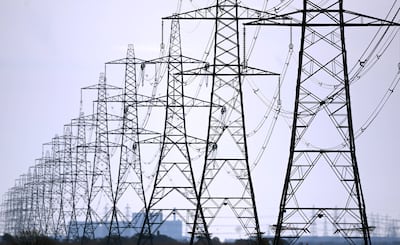In the UK’s bleak economic landscape, the drive to net zero is a rare bit of good news – and it could also be an election winner, according to new research.
Britain’s net zero economy grew 9 per cent in 2023, say analysts at the Energy and Climate Intelligence Unit (ECIU). That was in a year when overall GDP grew just 0.1 per cent and the UK was in recession by December.
The boom was driven by the likes of solar panel installers, waste recycling plants and heat pump fitters enjoying plenty of business, with more than 750,000 jobs linked to net zero.
“Particularly in comparison to how much the general UK economy has not grown, the findings really are quite stark,” said Jess Ralston, an ECIU energy analyst.
Chancellor of the Exchequer Jeremy Hunt is being urged to cash in on the growth in Britain’s green sector when he delivers a pre-election Budget on March 6.
With the Labour opposition way ahead in the polls, campaigners are also looking to Keir Starmer’s party to keep the green ball rolling despite ditching a £28 billion ($35.51 billion) spending plan.
As the 2024 election looms – although the date is not yet decided – the new analysis says Britain’s hubs of net zero activity are disproportionately found in battleground seats.
Seven Conservative-held battlegrounds are in the top 25 net zero hotspots, meaning throwing a Budget bone to green industry could pay off on election day.
Mr Hunt has sought to temper hopes of pre-election giveaways, and is under huge pressure from the Conservative benches to use any fiscal wriggle room he does have for tax cuts.
Likewise, Mr Starmer’s decision that £28 billion a year for warmer homes and other green initiatives was no longer viable reflected a Labour desire to neutralise Tory attacks on its spending plans.

It means a vast British response to US President Joe Biden’s $369 billion Inflation Reduction Act, or similar net zero plans in the works in Europe, seems not to be on the cards for now.
Still, experts say extra spending is only one option on ministers’ menu and that plenty could be done to boost Britain’s green industry without reaching deep into Treasury pockets.
This could include relaxing planning rules, setting hard deadlines, guaranteeing prices for clean energy providers and using modest amounts of taxpayer money to “crowd in” more private investment.
“If you want a heat pump, for example, it can take six weeks to get permission to connect it to your home,” said Thomas Farquhar, founder of clean tech company Heatio.
“If your boiler’s broken and you need the heating back on for you and the kids, you can’t be waiting six weeks to get permission to plug a heat pump in.”
What business craves above all is certainty and Prime Minister Rishi Sunak caused some irritation by pushing back key net zero deadlines last year, seeking to draw election battle lines with Labour.

The ideal for UK businesses would be for all parties to talk up the green transition and a team of Cabinet Office officials to think long-term about net zero, said Louise Hellem of the Confederation of British Industry.
“In an election year we really do want to see all political parties strongly backing the green agenda. That will give confidence to investors. Members really don’t want to see net zero issues politicised,” she said.
On the Labour side, Mr Starmer is still promising to invest in green steel and battery factories, upgrade five million homes, block new oil and gas licences and raise money with a new windfall tax on energy companies.
However, the danger for Labour is that that Mr Hunt uses the Budget to spend as much as possible and limits the next government’s room for manoeuvre, said Sam Alvis of the think tank Public First.
“The problem with Labour saying we’ve rowed back on some of our policies, we also don’t think there’s any money left, we will stick with Tory plans on various tax cuts… is that it gives the Conservatives all the power,” Mr Alvis said.
“If they want to salt the earth, if they want to bind Labour in, then they can.”


